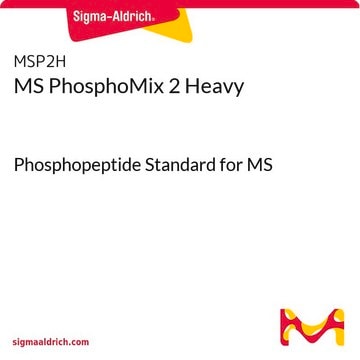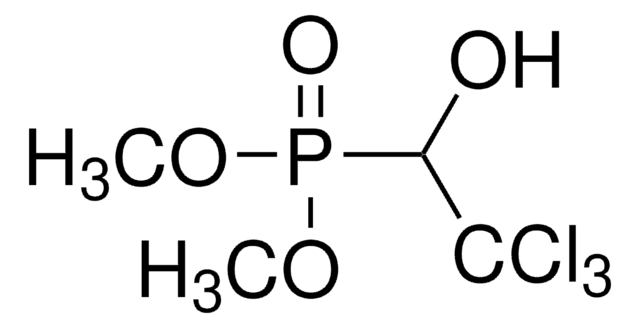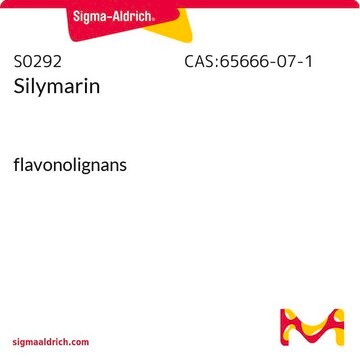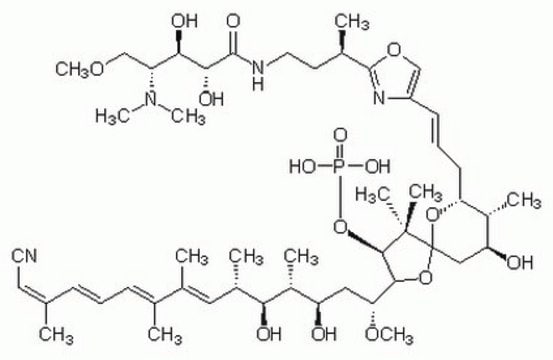C7632
Cantharidin
Synonyme(s) :
3a,7a-Dimethylhexahydro-4,7-epoxyisobenzofuran-1,3-dione, 7a-Dimethylhexahydro-3a,4,7-epoxyisobenzofuran, Cantharidine, Hexahydro-3a,7a-dimethyl-4,7-epoxyisobenzofuran-1,3-dione
About This Item
Produits recommandés
Couleur
white
Pf
215-217 °C (lit.)
215-218 °C
Solubilité
DMSO: soluble
ethanol: soluble
Chaîne SMILES
C[C@]12C3CCC(O3)[C@@]1(C)C(=O)OC2=O
InChI
1S/C10H12O4/c1-9-5-3-4-6(13-5)10(9,2)8(12)14-7(9)11/h5-6H,3-4H2,1-2H3/t5-,6+,9+,10-
Clé InChI
DHZBEENLJMYSHQ-XCVPVQRUSA-N
Informations sur le gène
human ... PPP2CA(5515) , PPP2CB(5516) , PPP2CBP(5517) , PPP2R1A(5518) , PPP2R1B(5519) , PPP2R2A(5520) , PPP2R2B(5521) , PPP2R2C(5522) , PPP2R3A(5523) , PPP2R5A(5525)
Vous recherchez des produits similaires ? Visite Guide de comparaison des produits
Description générale
Application
Actions biochimiques/physiologiques
Conditionnement
Mention d'avertissement
Danger
Mentions de danger
Conseils de prudence
Classification des risques
Acute Tox. 2 Oral - Eye Irrit. 2 - Skin Irrit. 2 - STOT SE 3
Organes cibles
Respiratory system
Code de la classe de stockage
6.1A - Combustible acute toxic Cat. 1 and 2 / very toxic hazardous materials
Classe de danger pour l'eau (WGK)
WGK 3
Point d'éclair (°F)
Not applicable
Point d'éclair (°C)
Not applicable
Équipement de protection individuelle
Eyeshields, Faceshields, Gloves, type P3 (EN 143) respirator cartridges
Certificats d'analyse (COA)
Recherchez un Certificats d'analyse (COA) en saisissant le numéro de lot du produit. Les numéros de lot figurent sur l'étiquette du produit après les mots "Lot" ou "Batch".
Déjà en possession de ce produit ?
Retrouvez la documentation relative aux produits que vous avez récemment achetés dans la Bibliothèque de documents.
Les clients ont également consulté
Notre équipe de scientifiques dispose d'une expérience dans tous les secteurs de la recherche, notamment en sciences de la vie, science des matériaux, synthèse chimique, chromatographie, analyse et dans de nombreux autres domaines..
Contacter notre Service technique









